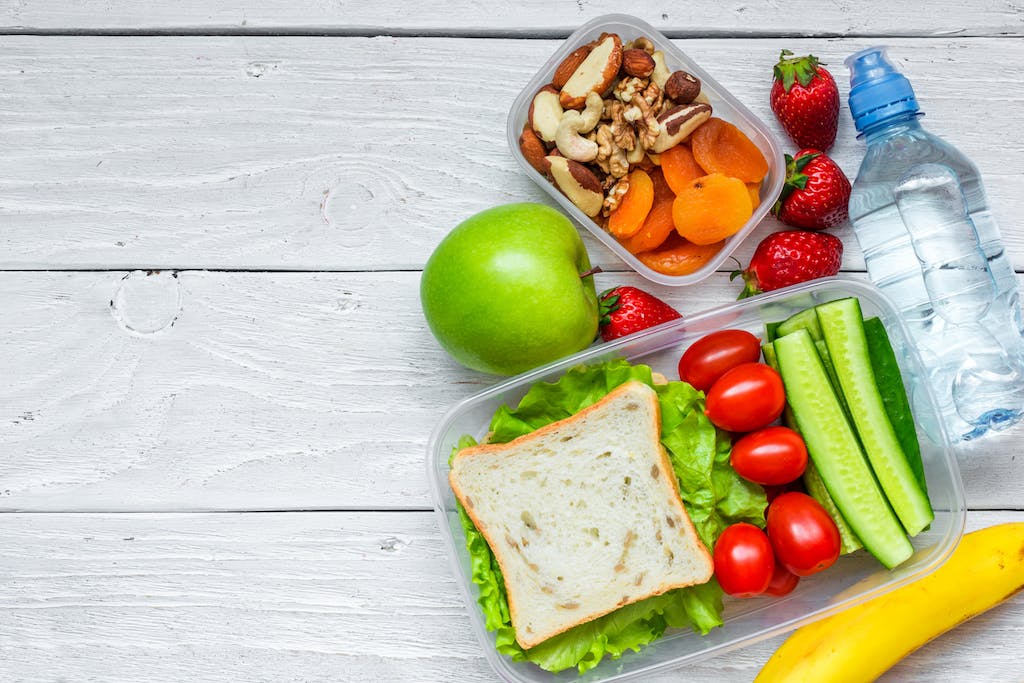Healthy Kids – Just a Parent Away

It’s no secret that more and more children in the United States are becoming seriously overweight; the rate of obesity in 6-19 year olds has more than tripled since 1980. But what can be done about it?
Children need special care to make sure that they get the right balance of food, physical activity, and play. Parents are responsible for making sure their children are happy and healthy. But of course, that’s easier said than done. Juggling busy schedules, hectic work places, school events, exercise regimens, and social occasions can be so overwhelming that frozen dinners and fast food can seem like the only options.
However, even when the pressure’s on there are some simple things you can do to help your child stay healthy.
A chance at a healthy life
If you're wondering why it's important to make sure your child eats a balanced diet and gets enough physical activity, consider these facts.

Credit:samael334 iStock
A recent study published in The Obesity Research Journal showed that children aged 8 to 15 years old who are in the upper half of the normal weight range are more likely than their leaner peers to become overweight or obese as young adults. This research isn't talking about those kids who are overweight as children, but those who are simply at the higher end of the normal weight range.
Another study found that children who watched television for more than two hours per day were likely to take up cigarette smoking as young adults and suffer serious health problems such as obesity and high cholesterol levels. Children who watched less than one hour per day were considerably healthier.

Credit:IPGGutenbergUKLtd iStock
Increasing reports of type 2 diabetes and high blood pressure in children aged eight to 17 is another worrisome trend. High blood pressure can lead to heart disease and stroke – even in young people.
What makes a healthy child?
A balanced diet is vital for supplying all the nutrients that growing children need. Children and adolescents should be encouraged to:

Credit:Yulia_Davidovich iStock
- Eat plenty of vegetables and fruits
- Eat plenty of cereals (including breads, rice, pasta and noodles), preferably wholegrain
- Include lean meat, fish, poultry and/or meat alternatives in their diets
- Include milks, yogurts, cheese and/or dairy alternatives in their diets. (Reduced-fat milks are not suitable for young children under 2 years because of their high energy needs, but reduced-fat varieties should be encouraged for older children and adolescents).
- Choose water as a drink instead of soda or punch

Credit:kazoka30 iStock
Care should be taken to:
- Limit saturated fat and moderate total fat intake. (Low-fat diets are not suitable for infants).
- Choose foods low in salt
- Consume only moderate amounts of sugars and foods containing added sugars

Credit:Constantinis iStock
Both children and teens also need lots of physical activity - at least 60 minutes each day. This doesn't mean you need to send your six-year-old out for a morning jog! But you should encourage your kids to play actively and monitor how much time they spend participating in passive activities (such as playing computer games or watching television).
Practical ideas for meal times

Credit:jenifoto iStock
Although you can’t argue that it’s a good idea to give your kids a healthy lifestyle, you probably feel that you barely have time to grab dinner from the nearest drive-through, let alone cook up a well-balanced meal!
But encouraging your children to be healthy is not about being a super-dad or super-mom, it's about helping your children develop a healthy attitude towards food and activity. You don't want your four-year-old dieting, you just want her to have a great start at life.
Here are some practical ideas you can try:

Credit:monkeybusinessimages iStock
- Have family meal times
- Make breakfast non-negotiable
Starting the day with a nutritious breakfast is important. Studies have shown that breakfast eaters do better at school and have less trouble concentrating. Breakfast doesn't have to be a bowl of cereal and a piece of fruit, your child might prefer eggs and toast, fruit salad and yogurt, or even a bowl of vegetable bean soup and toast. As long as it's nutritious, high in fiber and low in sugar, it's a good way to start the day. - Don't force children to clean their plates
Doing so teaches children to ignore their feelings of fullness. Serve child-sized portions and allow them to ask for more if they're still hungry. Teach them about feeling full – saying things like "This soup is delicious, but I am full, so I will stop eating now" help reinforce that it's okay to not finish everything if you are already satisfied. - Don't bribe or reward children with food

Credit:cenkaysahinalp73 iStock
- Don't use food as a way of showing love
When you want to show love, give your child a hug, some of your time, or praise. Using food to make your child happy could set them up for emotional eating habits in the future.

Credit:neskez iStock
- Describe foods as "everyday foods" and "occasional treats"
All foods can be incorporated into a healthy diet in moderation. Labeling foods as "good" or "bad" sets up a dieting-type mindset. Instead try describing foods such as fruits and vegetables as everyday foods, and chocolate and cookies as treats. - Offer water for quenching thirst
- Put healthy snacks at your child's eye level

Credit:johan63 iStock
- Restrict high-fat and high-sugar foods
- Limit eating out
With huge food portions being the norm in restaurants and fast food outlets, it's easy to overeat. If you're eating fast food or restaurant meals several times per week your family is probably eating many more calories than they need. Pretty soon these “super-sized” meals can seem like normal sized servings, encouraging overeating even at home. Allan Borushek has these tips: "When eating out, say no to super-sizing or up-sizing, choose healthier options, keep an eye on portion sizes and limit soft drink consumption."

Credit:jacoblund iStock
- Encourage your child to participate in preparing meals
Let your child be involved in choosing the menu, helping with the shopping or helping to prepare the meal - it's often more appealing to eat something you have helped make. Give them age-appropriate tasks so they can feel proud of their accomplishments and not get frustrated or injure themselves. - Be a good role model
Children are like sponges! In other words, they absorb everything that you say and do. If they see you enjoying a well-balanced diet, they are more likely to follow your example. You can't expect them to happily eat a salad while you bite into a cheeseburger.

Credit:michaeljung iStock
Lastly, but most importantly, remember that you are in control of what your child eats and drinks. Don't give in to clever marketing ploys aimed at children. Set your own rules and stick to them.
And remember that you, not your children, choose what you buy at the supermarket, so make it healthy, satisfying and full of the nutrients your growing child needs.